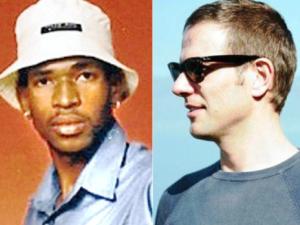
Photo: Oscar O’Hara and Barney van Heerden
Another murder in Johannesburg, South Africa, is leading police officials to consider the possibility that there may be a serial killer in the region who is going after gay men.
In the past 10 months, four men have been found bound and strangled to death inside their homes in the Joburg area. There was no sign of forced entry in any of the incidents, which suggests the victims knew their attacker, or attackers; and since theft was minimal, it doesn’t appear robbery was the motive.
The first murder was in December 2010, when Jim Cathels was found dead. Four months ago, Oscar O’Hara, 33, was house sitting for a friend, where his body was found. Siphiwe Selby Nhlapo, 36, was killed in a similar manner on Sept 11. The only difference was that Nhlapo’s murderer, or murderers, poured acid on his lifeless body. Barney van Heerden, 39, is the most recent victim.
“What I find noteworthy,” says forensic expert Dr Mark Welman, “is that all of the victims were strangled. Apart from the fact that this represents a thematic connection between the cases, let’s also note that to strangle a victim, the killer either has to be considerably stronger or have the victim at some disadvantage. If they are bound, they obviously cannot fight back. But a perpetrator operating alone might find it hard to tie a victim up. So one also would not want to rule out the possibility that the perpetrator had one or more accomplices.”
Although it’s been nearly a year since the first murder, police have yet to bring in a task team.
 Why you can trust Xtra
Why you can trust Xtra


